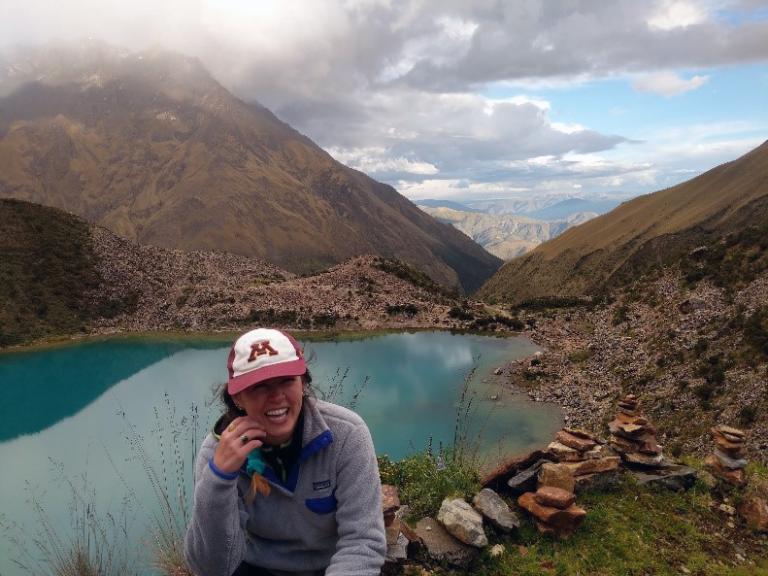News
Focus on SSW Alumni: Lindsay Carrera, MSW ‘18
“It took someone telling me I was already doing social work for me to realize my community work was encompassed under that professional umbrella, and once I learned more about the core ethics of the practice, I knew I wanted to pursue my MSW.”

Why did you pursue your Masters in Social Work (MSW), and what made you choose the University of Minnesota School of Social Work?
It took someone telling me I was already doing social work for me to realize my community work was encompassed under that professional umbrella, and once I learned more about the core ethics of the practice, I knew I wanted to pursue my Masters of Social Work. The U of M’s dual MPP/MSW program appealed to me given the unique landscape of community engagement and organizing happening at the local level in the Twin Cities around housing and labor justice.
How are you applying your professional skills in your career at this time?
I now work for IOM/UN-Migration as a welfare officer in South Africa. We support regional missions in facilitating rights-based service packages (health, protection, governance) and policy development for migrants. My team responds to the needs of staff and leadership in high-demand missions for programmatic and critical incident response. This includes emergency response counseling, so I am able to use my social work background and license as an additional asset to mitigate negative effects of immediate crises.
In what ways does your role intersect with other fields and community responses?
We intersect with the other agencies of the United Nations across the needs of migrants and vulnerable peoples, whose codifications often change and flex based on circumstances and political context. Most importantly, we engage with African government entities, and at times their non-governmental counterparts, to address urgent humanitarian scenarios.
In light of the societal and racial inequities laid bare this summer by COVID and police violence, how have you felt your work shift in response?
Community grief at witnessing the horrific and blatant display of longstanding and unacknowledged injustice in our systems has certainly impacted our work. It spurred a shift in organizational mindset quicker than it did policy, which is why the work is far from over. Most significantly, it has impacted mental health – disproportionately for folks who experience systemic racism and ethnic economic inequality in their day to day life. Our organization has mobilized to educate practitioners and create mechanisms for accountable leadership through training and funding commitments.
Where/how do you see our field evolving to support the social justice values of our profession?
My experience is that most stakeholders are prioritizing and actualizing the ‘localization’ of services and programs to embody a community-based response, which to me is significantly similar to our current understanding of rights-based and socially just practice. This will take time and will look different in rapidly evolving geopolitical and economic settings, but I do see the commitment to doing the work.